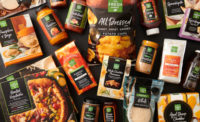There’s a private label outbreak, and there’s no slowing it down—both in stores and online.
Many are quick to associate private label with brick-and-mortar sales, given the fact that store brands account for 17% of consumer packaged goods (CPG) dollar sales in physical retail stores, according to a report by Nielsen, Chicago. Private label sales have also increased by $7.9 billion across brick-and-mortar stores in the past three years. But, CPG private label accounts for 3% of online dollar sales, up from 1.3% two years ago.
Private label is the new challenger “brand”
Emerging, disruptive brands have strong foundations online—and some are either non-existent in brick-and-mortar or have a very small physical presence.
Private label has emerged as the new challenger brand in e-commerce, generating a significant portion of the overall e-commerce sales within certain categories.
Traditional brands dominate e-commerce
The e-commerce realm has been transformative to brands and consumers—with sales dollar growth up by nearly two-thirds (65%) vs. a mere 3% for brick-and-mortar. And, while we all know that retailers have increasingly migrated online as part of their overall strategy, the products leading their success have been from the traditional brands, not the retailers themselves. Traditional brands represent familiarity to consumers, and with e-commerce still relatively new—at least compared to physical stores—consumer comfort level with familiarity bears itself out in the 97% CPG online dollar share from brands.
But, in the race to reach the value shopper online, retailers are heavily investing in their private label solutions.
Even so, private label has not reached a plateau in physical stores or online. As retailers and e-commerce providers increasingly take control of supply chains and launch their own “brands,” the friend-and-foe dynamic between retailers and brands will continue to get more complex. Brands find themselves in a tight spot between niche disruptors and private label, and only the most innovative will win the omnichannel battles ahead.
Methodology
The insights in this article were derived from:
- Nielsen Total U.S., including convenience, 52 weeks ended March 30, 2019.
- Nielsen Total U.S. e-commerce measurement powered by Rakuten Intelligence, 52 weeks ended March 30, 2019.






